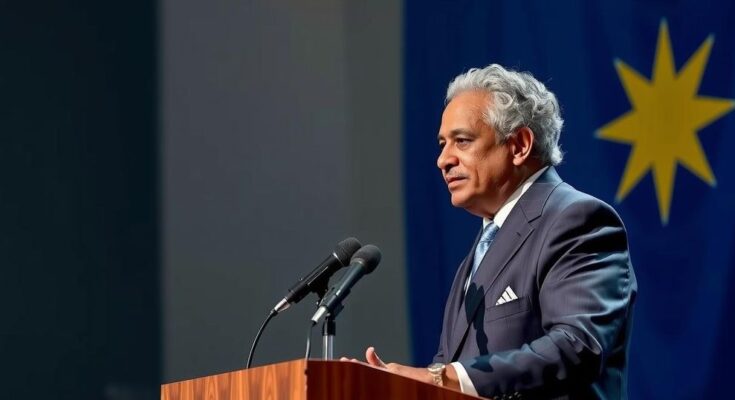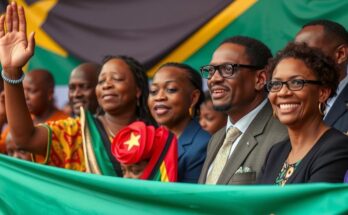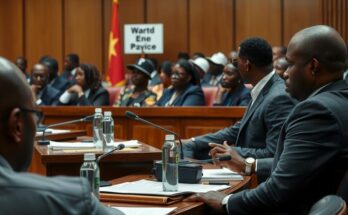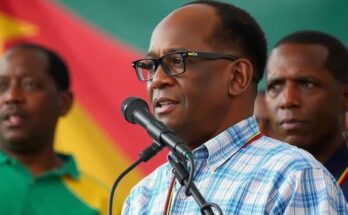Pravind Jugnauth concedes defeat in the parliamentary elections; Navin Ramgoolam poised to return as prime minister. The elections saw about 80% voter turnout and were marred by a recent wire-tapping scandal. This electoral shift reflects the populace’s desire for improved governance amidst economic challenges.
Pravind Jugnauth, the serving Prime Minister of Mauritius, has officially acknowledged his defeat in the recent parliamentary election, indicating that his political alliance, L’Alliance Lepep, is facing a significant loss. He expressed his gratitude towards the electorate and acknowledged their decision to support an alternative political team. The election results lean towards opposition leader Navin Ramgoolam, who is poised to reclaim the prime ministerial position for the third time, heading the Alliance of Change coalition. The elections, held to appoint representatives for the 62 parliamentary seats, saw approximately 80 percent voter turnout. This electoral exercise marked a crucial period for the nation, amidst concerns regarding political stability and governance issues despite the country’s economic growth. Ramgoolam, confident of his impending victory, emphasized the anticipation among the populace for a change. Meanwhile, the political landscape was marred by a recent wire-tapping scandal, which overshadowed Jugnauth’s earlier diplomatic achievement concerning the sovereignty of the Chagos Islands. The and economic development of Mauritius, a nation known for its tourism and stable democratic governance, are presently under scrutiny as the electorate seeks improved living standards as a priority in governance. In summary, this decisive parliamentary election reflects the electorate’s call for a leadership change, with the populace’s aspirations for enhanced governance underscoring the current political dynamics within Mauritius.
The parliamentary elections in Mauritius have significant implications for political leadership and governance within the country. Historically, Mauritius has enjoyed political stability and economic growth since its independence in 1968. However, recent criticisms regarding governance and corruption, alongside social concerns like the cost of living, catalyzed a change in political sentiment. The electoral process not only reflects the will of the people but also their demands for better management of economic and social issues. These elections also embody the ongoing legacy of political dynasties within the nation, particularly the figures of Jugnauth and Ramgoolam, both of whom have notable familial ties to the country’s political history.
In conclusion, Prime Minister Pravind Jugnauth’s concession in the parliamentary elections marks a pivotal change in Mauritian politics, as opposition leader Navin Ramgoolam is likely to reclaim the premiership. The high voter turnout indicates a robust engagement from the electorate, who have expressed a desire for a shift towards improved governance and responsiveness to economic challenges. As Mauritius navigates through this transition, the focus will remain on addressing the pressing concerns of governance, as well as sustaining the nation’s economic growth.
Original Source: www.aljazeera.com




